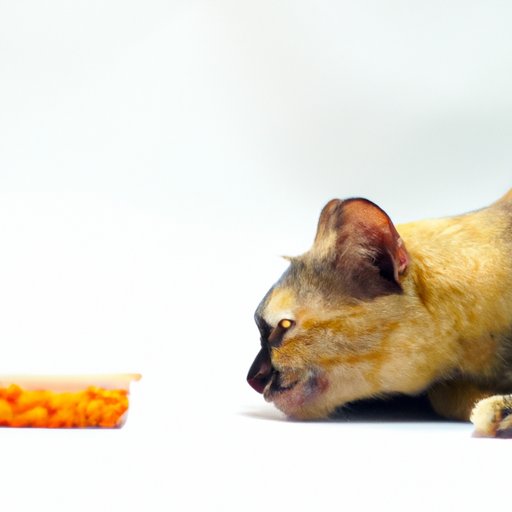
I. Introduction
If you own a cat that is underweight, you may be worried about their health and well-being. Underweight cats are susceptible to a variety of health issues, including a weakened immune system and decreased muscle mass. In this article, we will explore the nutritional needs of underweight cats and provide you with tips and strategies to help your feline friend gain weight healthily.
II. Understanding the Nutritional Needs of Underweight Cats
A balanced diet is essential for the overall health of a cat. The diet should contain all the necessary nutrients to keep the cat healthy and happy. When it comes to an underweight cat, this is particularly important. A balanced diet that contains the right nutrients can help a cat gain weight in a healthy manner.
The essential nutrients that are crucial for a healthy weight gain in cats include:
- Protein
- Fat
- Carbohydrates
- Vitamins
- Minerals
III. Adjusting Your Cat’s Feeding Routine
To help your cat gain weight, you need to calculate the right amount of food that they need based on their age, weight, and activity level. Feeding your underweight cat smaller, frequent meals is often the best approach. You could also try adding food supplements to help provide the necessary nutrients.
A feeding routine that can aid weight gain involves establishing a set feeding schedule and sticking to it. Additionally, avoid leaving food out for long periods as it could attract pests or become rancid. Finally, make sure your cat’s water bowl is continuously clean and full of fresh water.
IV. Choosing the Right Cat Food for Weight Gain
When choosing cat food for weight gain, it is essential to look for high-quality food that is high in calories and nutrients. Avoid foods that have low-quality ingredients such as fillers, by-products, and artificial preservatives. Look for labels that have high protein and healthy fats to help your cat gain weight healthily.
You could consider feeding your underweight cat canned or wet food, which is often healthier and contains high-quality proteins than dry food. For instance, wet food has fewer carbohydrates and more protein, which promotes a cat’s weight gain in a healthy manner.
V. Increasing Your Cat’s Caloric Intake Safely
One way to increase your cat’s caloric intake is to introduce healthy high-protein snacks and adjust meal sizes. However, it is crucial to ensure that the snacks are healthy and do not harm the feline’s health. If in doubt, please consult your vet.
Another approach is to add supplements such as omega-3 fatty acids, which aid a cat’s weight gain and boost their immune system. If you notice your cat is still struggling to gain weight, it’s advisable to consult your vet for advice on the best way forward.
VI. Physical Activity and Weight Gain for Cats
One should also consider the role of exercise in a cat’s weight gain journey. Exercise can help cats increase muscle mass, which is necessary for a healthy weight gain. However, every feline’s needs are different, and it’s essential to talk to your vet to create an exercise routine that is suitable for your cat’s current health conditions.
Further, incorporating playtime into your cat’s day can help them stay active and aid weight gain. For instance, offering toys that encourage active play or playing hide and seek games with your cat can help keep them interested and happy.
VII. Conclusion
In conclusion, helping your underweight cat gain weight can be an overwhelming and stressful journey, but with the right approach, it’s possible. Ensure your cat receives a balanced diet that contains enough essential nutrients, safely increase their caloric intake, establish a feeding routine, and make sure they are physically active. With time, you will see improvements in their weight gain and overall health.
Remember, if you have any concerns or your cat is not gaining weight despite your efforts, please consult your vet for advice and guidance.




